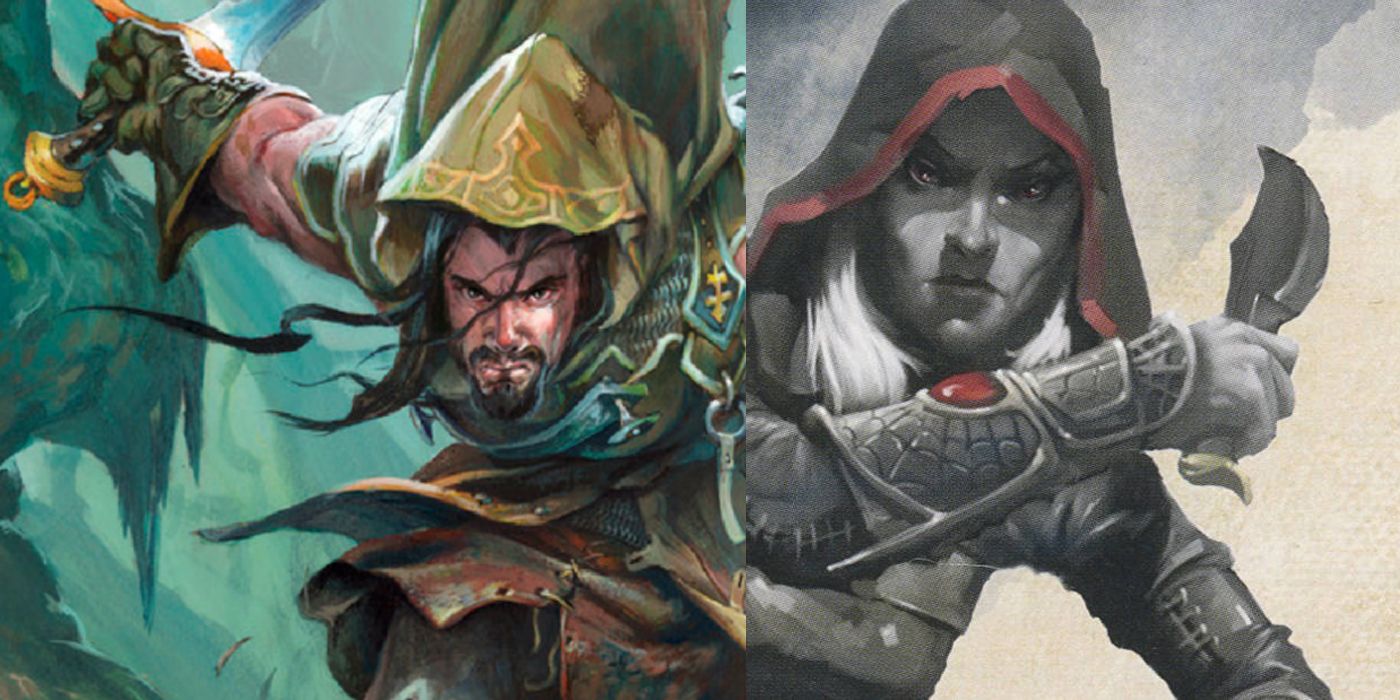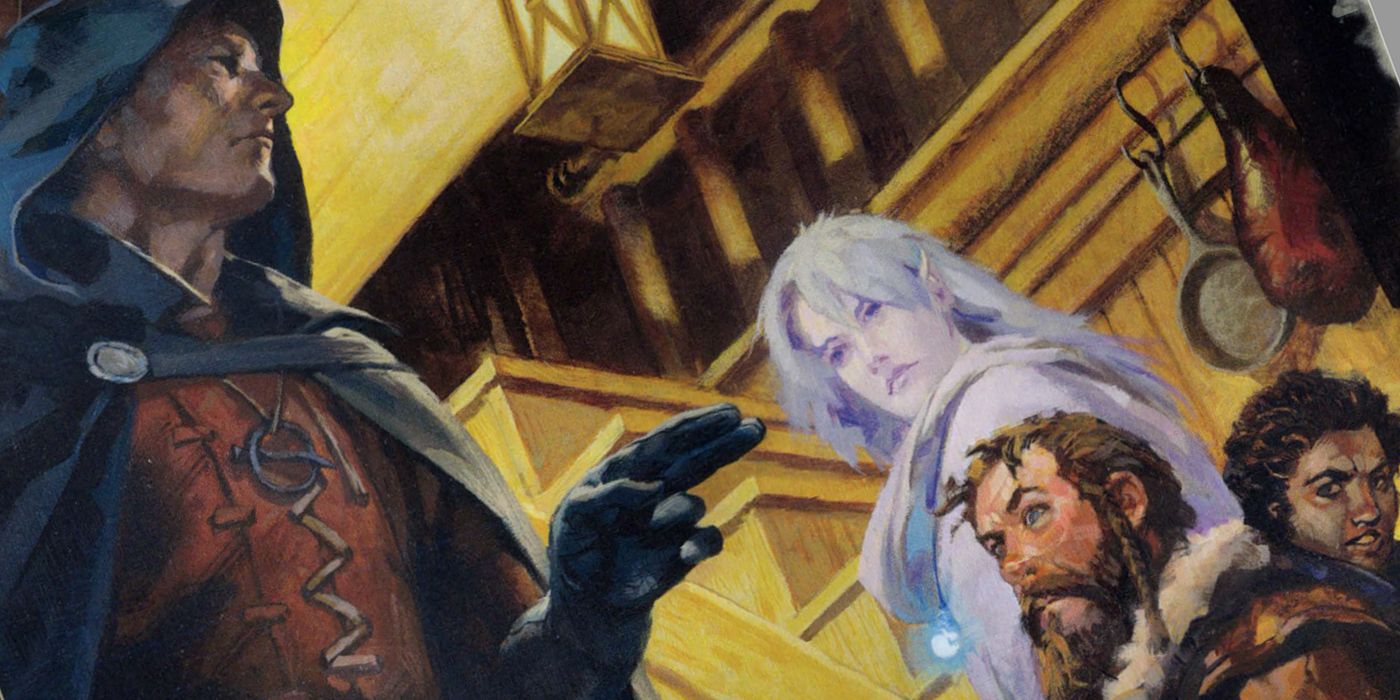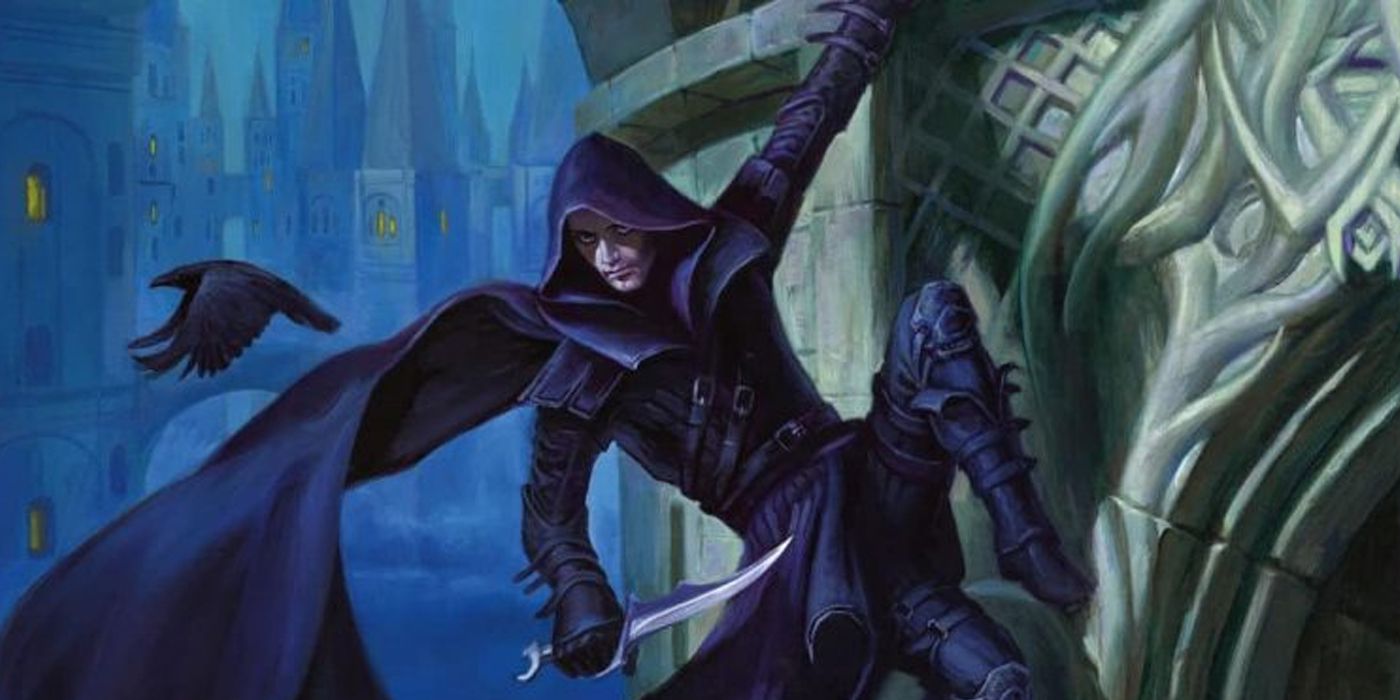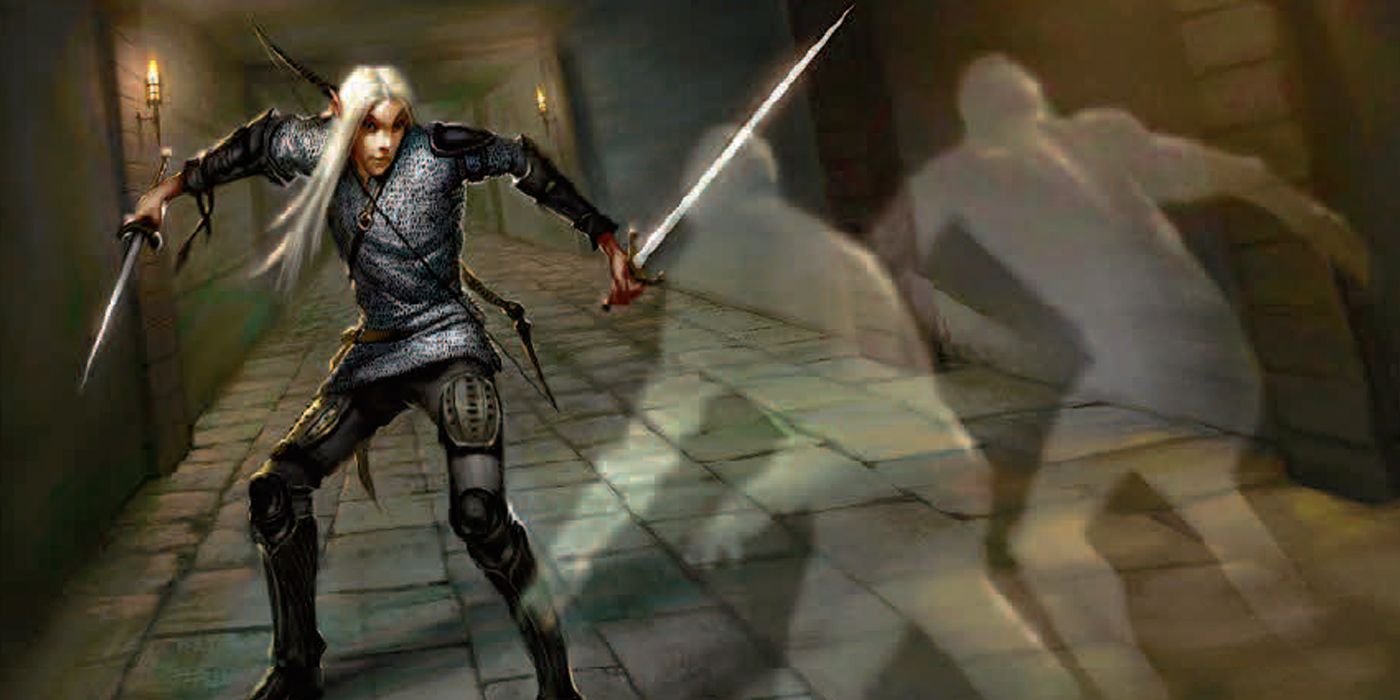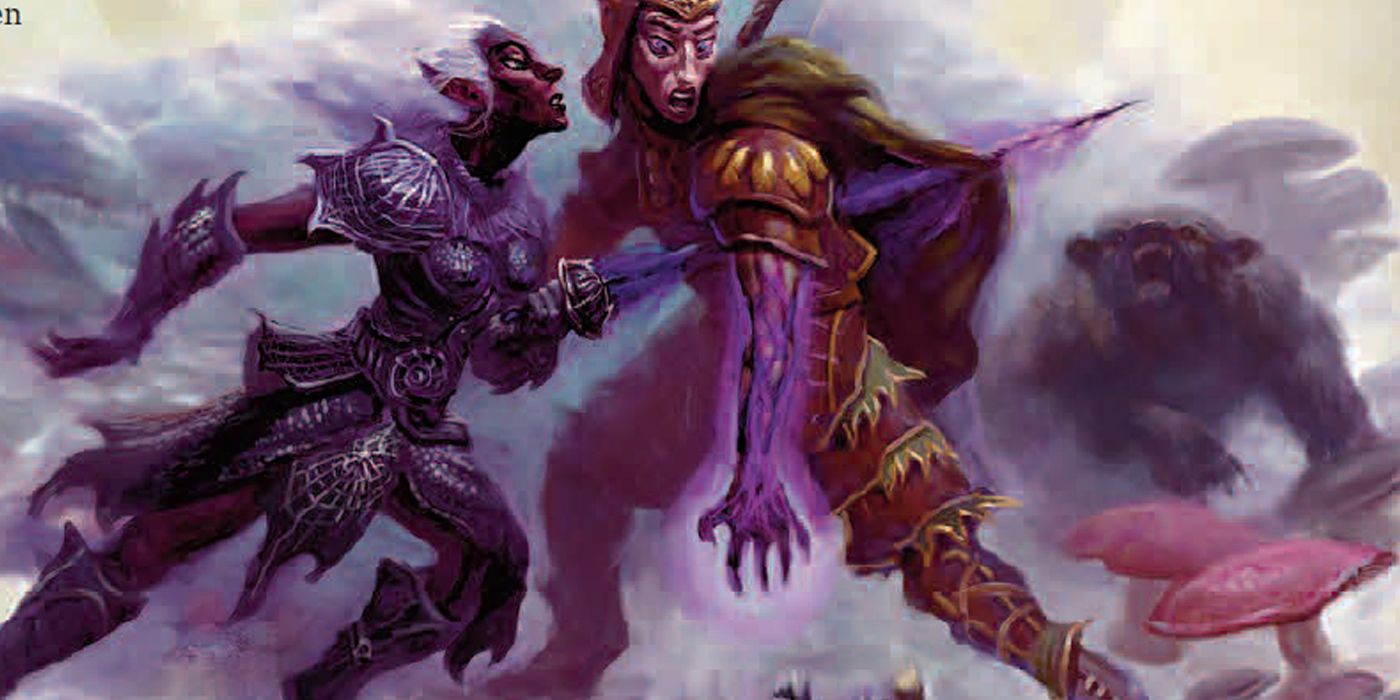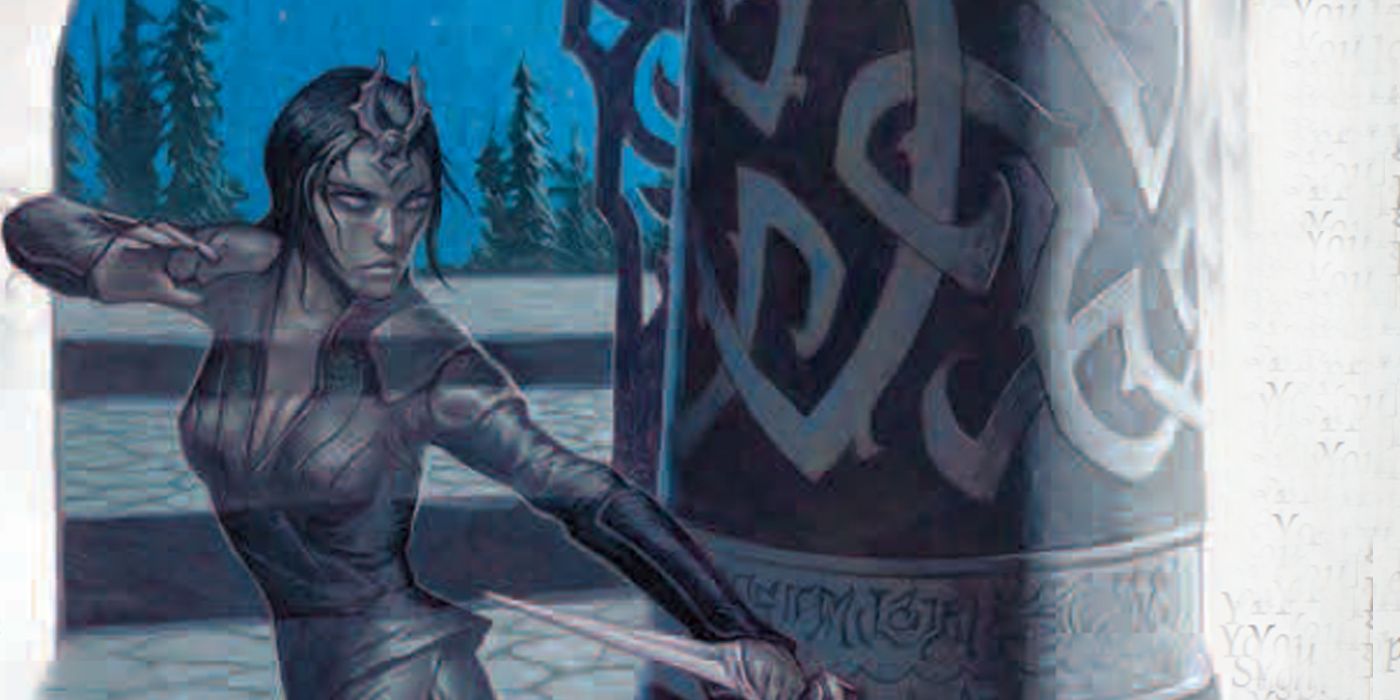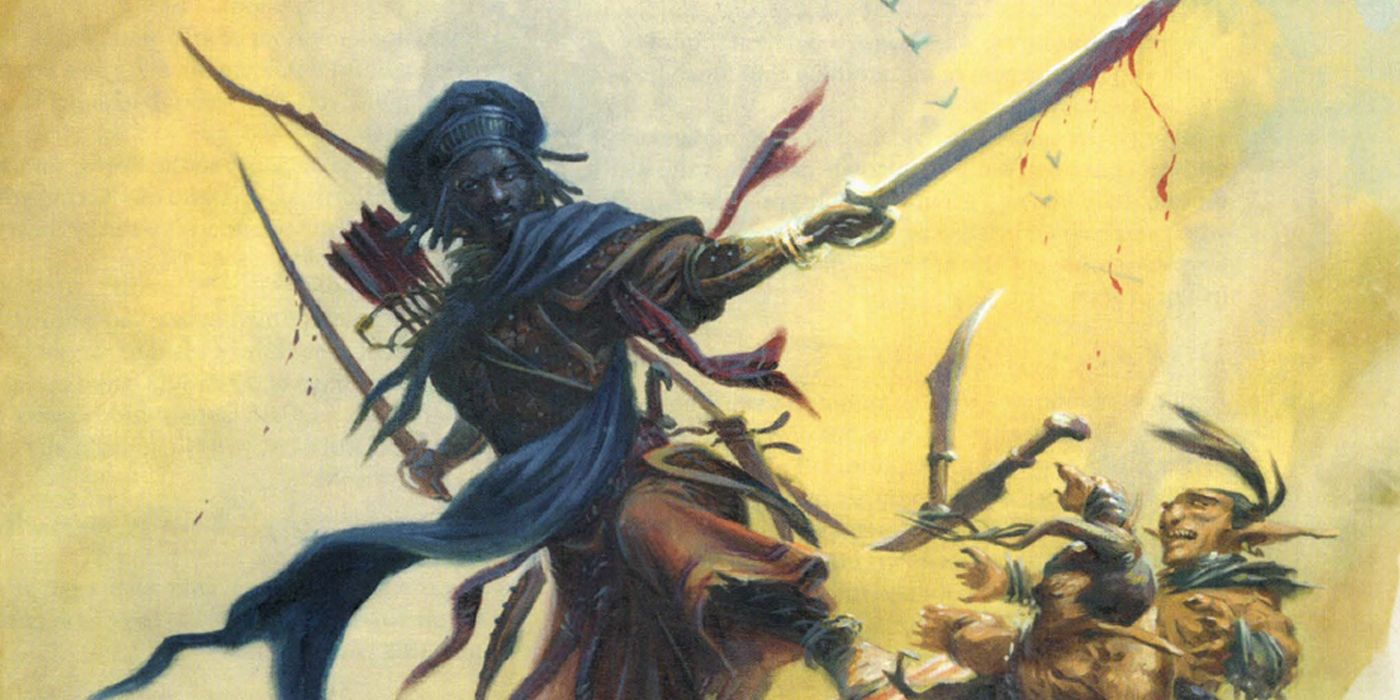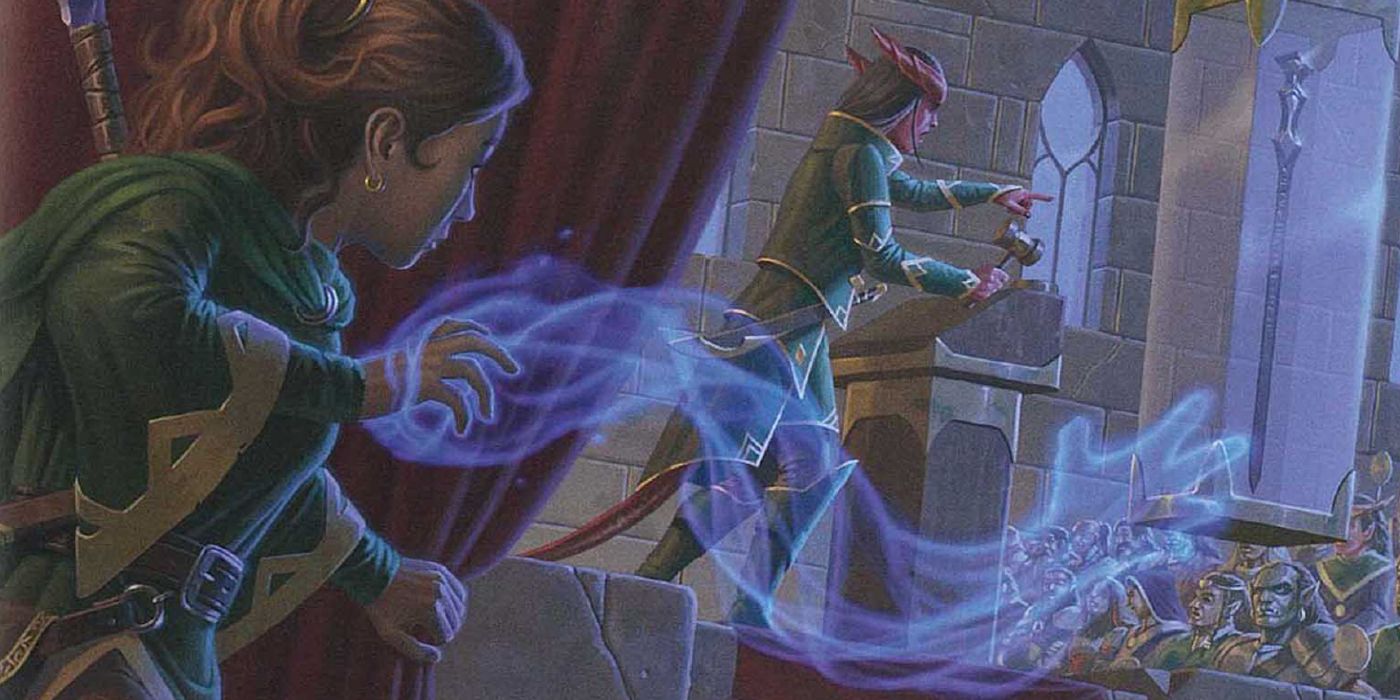Rogues in Dungeons & Dragons take on the role of assassins, saboteurs, and clandestine operatives for parties and villainous organizations alike. Due to their sheer damage output and skill potential, Rogues become a staple presence in any player table. And at the right hands, Rogues in Dungeons & Dragons become threats in almost any situation - be it in a combat encounter or a Skill Check.
Rogues aren't always black-clad killers with daggers, though. As a matter of fact, both the base Player's Handbook and recent expansions provide players with a whole swath of Roguish Archetypes to choose from. And for any Rogue newcomer, some of these Archetypes will indeed outkill the rest.
Inquisitive
The Inquisitive fills in the gap that other people don't usually notice. Rogues who take on the Inquisitive Archetype tend to notice things that other people don't ever want them to notice. Inquisitives catch liars in the act and can spot inconsistencies in environments that make them great trackers.
- Advantage: Nothing perhaps beats an Inquisitive's unparalleled approach towards Perception and Insight. Their Subclass Features excel in arming them with the means to see through hidden things.
- Disadvantage: Sadly, the Inquisitive does have a lack of an "active' component to their repertoire. There's not much to do after an Inquisitive spots an inconsistency in their environment.
Notable Subclass Features:
- Insightful Fighting: Inquisitives who took Expertise in Insight can do a lot of wonders with Insightful Fighting. When successful, Insightful Fighting gives the Inquisitive the opportunity to make a Sneak Attack even without the attack roll Advantage.
- Unerring Eye: Albeit Wisdom-based, Unerring Eye is a great result for a WIS investment given its ability to spot illusions.
- Steady Eyes: When combined with Eye for Detail, Steady Eyes become a great way to detect hidden enemies and hidden traps. Granted, Steady Eyes does have a movement limitation, making them great for pre-combat planning.
Mastermind
Masterminds live only to serve - but themselves first, their masters second. Masters of information, Masterminds have means of tapping and navigating layers upon layers of intrigue to get information they need. Spymasters, courtiers, and schemers fall under the Mastermind Archetype.
- Advantage: Players with a knack for intrigue will love the Mastermind in extremely social campaigns. Their ability to gather information, analyze them, and misdirect others are welcome assets when dealing with socialites and other deceitful NPCs.
- Disadvantage: Sadly, the Mastermind doesn't have a lot of active or combat options that Rogues should normally have. When underutilized, the Mastermind can severely underperform in combat.
Notable Subclass Features:
- Master of Tactics: Perhaps their only combat-oriented ability, Master of Tactics allows Masterminds to use Help as a Bonus Action. And when used to help an ally attack another creature, Help's range extends to enemies as far as 30ft.
- Insightful Manipulator: A unique way to metagame, Insightful Manipulator allows the Mastermind to determine the Class Levels, Charisma Score, Wisdom Score, or Intelligence Score of a target versus their own. Doing so can help them and the party identify particular Spells or abilities that may or may not work on them.
- Misdirection: As a Reaction, if the Mastermind is beside a creature that can act as cover, they can force an incoming attack to target that creature instead of them.
Thief
Thieves are the true archetypal Rogues - larcenous to a fault. They're most notably individuals with a peculiar mastery of their craft - investigators, delvers, explorers, or even the common criminal. Despite being the most common Roguish Archetype, Thieves aren't to mess with.
- Advantage: Thieves become the perfect dungeon delvers especially with their abilities to disarm traps and open locks. Players who want the perfect infiltrator won't have much difficulties with the Thief.
- Disadvantage: True to their uncomplicated nature, the Thief doesn't offer as much with regards to utility options. Players who want to rake in damage or do other flavorful things might want to try out other Roguish Archetypes.
Notable Subclass Features:
- Fast Hands: With the right hands, Thieves can make the most out of Cunning Action to use various objects as Bonus Actions. Being able to use various kits in such a quick manner can transform a Thief into a toolkit powerhouse.
- Thief's Reflexes: Despite being accessible at 17th Level, Thieves become a monster as this Feature allows them to take two turns during the first round of any combat. This essentially allows them to lay ambushes, start attacks, or make quick escapes should the need arise.
- Use Magic Device: Thieves with this Feature will ignore any Class, Race, and Level Requirements when it comes to using Magic Items. This greatly boosts a Thief's usefulness in any dimension of the campaign.
Scout
Scouts see the wilderness as their home, and they have all the tools needed to explore new locations safely and without much problems. Scouts work best as spies, bounty hunters, and ambushers - all excelling in their advanced knowledge of terrain.
- Advantage: Straightforward to a fault, Scouts can almost outpace Rangers in terms of Survival and Nature Skills. Scouts are a great choice for players who want to become Rangers in flavor but without its features.
- Disadvantage: The Scout does favor long-ranged combat compared to the usual melee DPS - which means there are fewer people keeping enemies at bay on the frontlines.
Notable Subclass Features:
- Ambush Master: This Feature gives the Scout an Advantage towards Initiative Rolls. Additionally, allies have Advantage to attack rolls against the first creature the Scout hits as soon as combat begins. This lasts until the Scout starts their turn again.
- Sudden Strike: This Feature grants the Scout an Extra Attack as a Bonus Action. Moreover, this attack can become a Sneak Attack, effectively doubling the Sneak Attack damage for that turn. Granted, Scouts can't use Sudden Strike to make Sneak Attacks to the same target twice during that same turn.
- Skirmisher: Great for ranged builds, this Feature allows Scouts to use their Reaction to quickly exit the reach of a creature that ends their turn adjacent to them.
Phantom
Phantoms become so immersed with killing that they form a mystical connection with death itself. Rogues who transform into Phantoms become the silent confidants of dark mages, agents of deathly entities, or an emissary of incomprehensible power.
- Advantage: Flavor-wise, Phantoms are a great way to access knowledge from the dead that Clerics and necromancers are normally capable of doing. With Soul Trinkets, Phantoms have a deadly source of extra damage and means of asking questions to the dead.
- Disadvantage: Unlike other Roguish Archetypes, Phantoms do become slow burners. Their best features easily become accessible at around 9th Level, but their skillset spirals into greatness after that.
Notable Subclass Features:
- Tokens of the Departed: Easily the bread and butter of the Phantom, access to Soul Trinkets can grant a wide variety of benefits. It has three advantages - Advantage on Constitution Saves, additional damage, and asking questions to the dead.
- Whispers of the Dead: Being able to pick up any Skill on such short notice can become extremely useful in a pinch. With this, Phantoms become a Swiss Army Knife.
- Wails from the Grave: Since this attack's damage halves a reroll of all the dice used in Sneak Attack, it can start quite slow. However, the more potent the Phantom's Proficiency Bonus and Sneak Attack Damage becomes at higher levels, the deadlier Wails from the Grave becomes against its targets.
Soulknife
Soulknives use the power of their minds to infiltrate their opponents - attacking on both physical and psionic fronts. Given their talents, Soulknives easily find themselves in the employ of governments or mystical parties in need of psychics.
- Advantage: Soulknives can capitalize the use of their Psionic Energy Dice, especially since there's always something to do even with a low-enough roll. This makes resource management something more manageable for Soulknives.
- Disadvantage: Despite their reliable nature, the rather straightforward nature of the Soulknife might make them lacking in terms of flavor and creative areas.
Notable Subclass Features:
- Psionic Power: Easily the Soulknife's bread and butter, Psionic Power gives them access to Psionic Energy Dice that they can use for a myriad of effects. For Psi-Bolstered Knack, Soulknives get a much-needed boost towards Skills. And with Psychic Whispers, characters instantly get a means of telepathic communication - great for coordination.
- Psychic Blades: The primary combat option of Soulknives, their Psychic Damage, and extended range makes them more potent compared to an ordinary dagger.
- Soul Blades: This Feature grants Soulknives more options with their Psionic Energy Dice. They can use Homing Strikes to try forcing an attack to hit and use Psychic Teleportation for quick exits.
- Psychic Veil: This Feature grants full invisibility for an hour, which is a great way to disarm traps and Help allies in combat without being noticed.
Assassin
Assassins are one with the shadows - striking their marks without ever being noticed. Being masters of assassination and infiltration, Assassins often take the form of bounty hunters, spies, killers, and anyone specifically trained to kill quietly.
- Advantage: Perhaps the most straightforward across all Roguish Archetypes, the Assassin focuses on infiltration and assassination. Its simple list of Features will give newcomers an easy time dishing out devastating damage without ever being seen.
- Disadvantage: Despite the straightforward nature, Assassins do lack utility options that Rogues are often known for.
Notable Subclass Features:
- Assassinate: This Feature gives the Assassin an Advantage against foes who haven't taken a turn in the entire combat encounter. And when used against unsuspecting enemies, all hits against that surprised creature becomes Critical.
- Death Strike: While a 17th Level Feature, the potential to double the damage of a surprise attack already makes up for a lot of DPS. Combined with Assassinate's instant Critical, the Assassin can kill enemies quickly and without remorse.
- Infiltration Expertise: Albeit more of a flavor element than anything else, Infiltration Expertise is a great way to "reestablish" cover for Assassins - great for roleplay.
- Impostor: A highlight feature of the Assassin, being able to "mimic" a person's behavior, writing, and speech is frightening especially without magic. This is great for missions that involve infiltrating locations as someone else.
Swashbuckler
Swashbucklers transform combat into a performance - using dazzling speed and charming swordplay to captivate foes while killing them. Pirates and duelists often train in the art of swashbuckling. And all Rogues who take on this Roguish Archetype become deadly dancers with the sword.
- Advantage: The Swashbuckler has Subclass Features that make them more reliable when it comes to applying Sneak Attacks. And when not attacking, the Swashbuckler has a lot of mobility options that make them extremely adept when dodging attacks. Their Features even encourage Rogues to invest in Charisma to play the Face of the party.
- Disadvantage. Despite the many perks of the Swashbuckler, their tendency to make the Rogue focus on too many Ability Scores may just provide mediocre foci instead of a tremendous focus.
Notable Subclass Features:
- Fancy Footwork: This Feature provides a handy mobility option that gives Swashbucklers more than enough room to try fleeing as soon as they launch a melee attack.
- Rakish Audacity: Aside from the Charisma Proficiency, this Feature adds a lot of benefits to the Sneak Attack feature. Primarily, Swashbucklers can now do Sneak Attacks even if the target is the only adjacent creature next to them. This Feature makes them more adept in Sneak Attacks compared to other Rogues.
- Panache: Essentially a taunting ability, a Swashbuckler who uses this successfully to an enemy can either charm them or goad them into attacking only the Swashbuckler.
Arcane Trickster
An Arcane Trickster adds magic to their repertoire of nasty tricks and techniques. Thanks to illusions and enchantments, Arcane Tricksters have a wide variety of tools to accomplish any task. And their unique approach towards magic gives the arcane an entirely new - and roguish - dimension.
- Advantage: Being the only Subclass with a Spell List, the Arcane Trickster is easily the Subclass of choice for players who want to maximize their utility options. Tapping into the Wizard spell list alone gives Rogues access to ridiculously powerful combat options.
- Disadvantage: Newcomers to the Rogue Class might feel overwhelmed with the addition of the Wizard spell list for this Class. Having access to this much utility might get underused at the hands of the inexperienced.
Notable Subclass Features:
- Spellcasting: Easily the highlight of the Arcane Trickster, this Subclass gives players access to Illusion and Enchantment Spells.
- Mage Hand Legerdemain: Arcane Tricksters have access to an improved Mage Hand, with this Feature adding more complex things that the Hand could do that the ordinary version couldn't.
- Magical Ambush: Casting a Spell while hidden will have the target receive a Disadvantage to the resulting Saving Throw.
- Spell Thief: Despite being accessible at 17th Level, this Feature allows the Arcane Trickster to "steal" a Spell from another Spellcaster. Firstly, the Rogue gets access to that Spell for the next eight hours. And as a kicker, the source of the Spell can't cast that same spell for the same duration.

